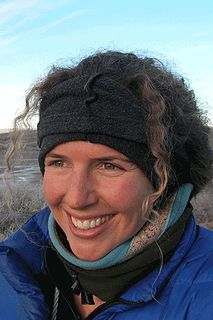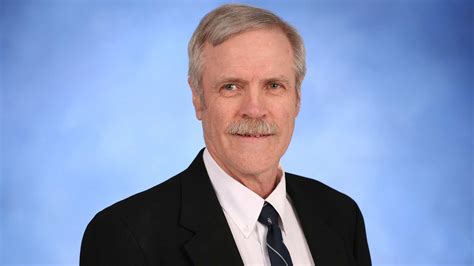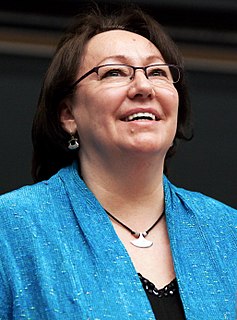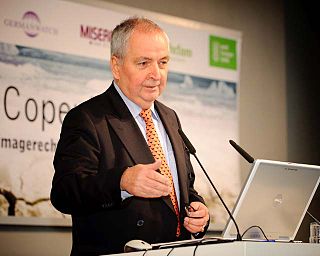A Quote by Michael Specter
Many climate scientists say their biggest fear is that warming could melt the Arctic permafrost - which stretches for thousands of miles across Alaska, Canada, and Siberia.
Related Quotes
There is a point of no return after which warming becomes unstoppable - and we are probably going to sail right through it. It is the point at which anthropogenic (human-caused) warming triggers huge releases of carbon dioxide from warming oceans, or similar releases of both carbon dioxide and methane from melting permafrost, or both. Most climate scientists think that point lies not far beyond 2 degrees C hotter (3.6 degrees F).
In Alaska, the beaches are slumping so much, people are having to move houses. In Tuktoyaktuk, the land is starting to go under water. The glaciers are melting and the permafrost is melting. There are new species of birds and fish and insects showing up. The Arctic is a barometer for the health of the world. If you want to know how healthy the world is, come to the Arctic and feel its pulse.
We finally know where the red line for climate really is. After the rapid melt of arctic ice in the summer of 2007, our best scientists, led by NASA's Jim Hansen, went back to work and produced a series of papers showing that with more than 350 ppm (parts per million) of carbon dioxide in the atmosphere, we couldn't have a planet "similar to the one on which civilization developed and to which life on earth is adapted."
Scientists had said, "If you keep burning coal and gas and oil, you will melt the Arctic." And then the Arctic melted just as they had predicted. Did Shell Oil look at the melt and say, "Huh, maybe we should go into the solar-panel business instead?" No, Shell Oil looked at that and said, "Oh, well, now that it's melted it will be easier to drill for more oil up there." That's enough to make you doubt about the big brain being a good adaptation.
We have no choice: we must protect Arctic ice, enable it to continue to act as an essential temperature regulator for the planet, avoid the catastrophic rise in sea levels that would result from the ice melt, and stop the disappearance of permafrost releasing irreversible quantities of greenhouse gases back into the atmosphere.
The IPCC (Intergovernmental Panel on Climate Change, a group of more than 2,500 scientists) has provided the world community with first class assessments of the soaring temperatures the world is facing, the devastating impacts of these rises and the ways in which we can try and avoid the worst effects of global warming. We now know climate change is real and the hand of humankind in this warming is becoming clearer and clearer.
I'm a skeptic. ...Global Warming it's become a new religion. You're not supposed to be against Global Warming. You have basically no choice. And I tell you how many scientists support that. But the number of scientists is not important. The only thing that's important is if the scientists are correct; that's the important part.
Many scales of climate change are in fact natural, from the slow tectonic scale, to the fast changes embedded within glacial and interglacial times, to the even more dramatic changes that characterize a switch from glacial to interglacial. So why worry about global warming, which is just one more scale of climate change? The problem is that global warming is essentially off the scale of normal in two ways: the rate at which this climate change is taking place, and how different the "new" climate is compared to what came before.
We have many advantages in the fight against global warming, but time is not one of them. Instead of idly debating the precise extent of global warming, or the precise timeline of global warming, we need to deal with the central facts of rising temperatures, rising waters, and all the endless troubles that global warming will bring. We stand warned by serious and credible scientists across the world that time is short and the dangers are great. The most relevant question now is whether our own government is equal to the challenge.
































